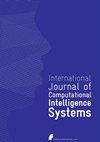Revolutionizing Education: Advanced Machine Learning Techniques for Precision Recommendation of Top-Quality Instructional Materials
IF 2.9
4区 计算机科学
International Journal of Computational Intelligence Systems
Pub Date : 2023-11-13
DOI:10.1007/s44196-023-00361-z
引用次数: 0
Abstract
Abstract The integration of educational technology in the modern classroom has transformed the way students learn yet challenges in providing high-quality materials persist. To address this, we propose a novel support vector-based long short-term memory (LSTM) recommendation model. Our model combines support vector machines (SVM) and LSTM networks to enhance accuracy. The SVM analyzes material content, identifying key features for topic relevance. Meanwhile, the LSTM assesses word sequences to predict material relevance to the topic. We conducted experiments on a diverse instructional dataset, demonstrating superior performance in accuracy and relevance compared to existing models. Our model adapts to new data and continuously improves based on user feedback. Therefore, our Support Vector-based LSTM recommendation model can revolutionize instructional material recommendations. Its accuracy and relevance enhance student engagement and learning outcomes, optimizing the educational experience.革命性的教育:先进的机器学习技术精确推荐高质量的教学材料
教育技术与现代课堂的融合改变了学生的学习方式,但在提供高质量教材方面仍然存在挑战。为了解决这个问题,我们提出了一种新的基于支持向量的长短期记忆推荐模型。我们的模型结合了支持向量机(SVM)和LSTM网络来提高准确率。支持向量机分析材料内容,识别主题相关性的关键特征。同时,LSTM评估词序列以预测材料与主题的相关性。我们在不同的教学数据集上进行了实验,与现有模型相比,在准确性和相关性方面表现优异。我们的模型适应新的数据,并根据用户反馈不断改进。因此,我们基于支持向量的LSTM推荐模型可以彻底改变教材推荐。它的准确性和相关性提高了学生的参与度和学习成果,优化了教育体验。
本文章由计算机程序翻译,如有差异,请以英文原文为准。
求助全文
约1分钟内获得全文
求助全文
来源期刊

International Journal of Computational Intelligence Systems
工程技术-计算机:跨学科应用
自引率
3.40%
发文量
94
期刊介绍:
The International Journal of Computational Intelligence Systems publishes original research on all aspects of applied computational intelligence, especially targeting papers demonstrating the use of techniques and methods originating from computational intelligence theory. The core theories of computational intelligence are fuzzy logic, neural networks, evolutionary computation and probabilistic reasoning. The journal publishes only articles related to the use of computational intelligence and broadly covers the following topics:
-Autonomous reasoning-
Bio-informatics-
Cloud computing-
Condition monitoring-
Data science-
Data mining-
Data visualization-
Decision support systems-
Fault diagnosis-
Intelligent information retrieval-
Human-machine interaction and interfaces-
Image processing-
Internet and networks-
Noise analysis-
Pattern recognition-
Prediction systems-
Power (nuclear) safety systems-
Process and system control-
Real-time systems-
Risk analysis and safety-related issues-
Robotics-
Signal and image processing-
IoT and smart environments-
Systems integration-
System control-
System modelling and optimization-
Telecommunications-
Time series prediction-
Warning systems-
Virtual reality-
Web intelligence-
Deep learning
 求助内容:
求助内容: 应助结果提醒方式:
应助结果提醒方式:


